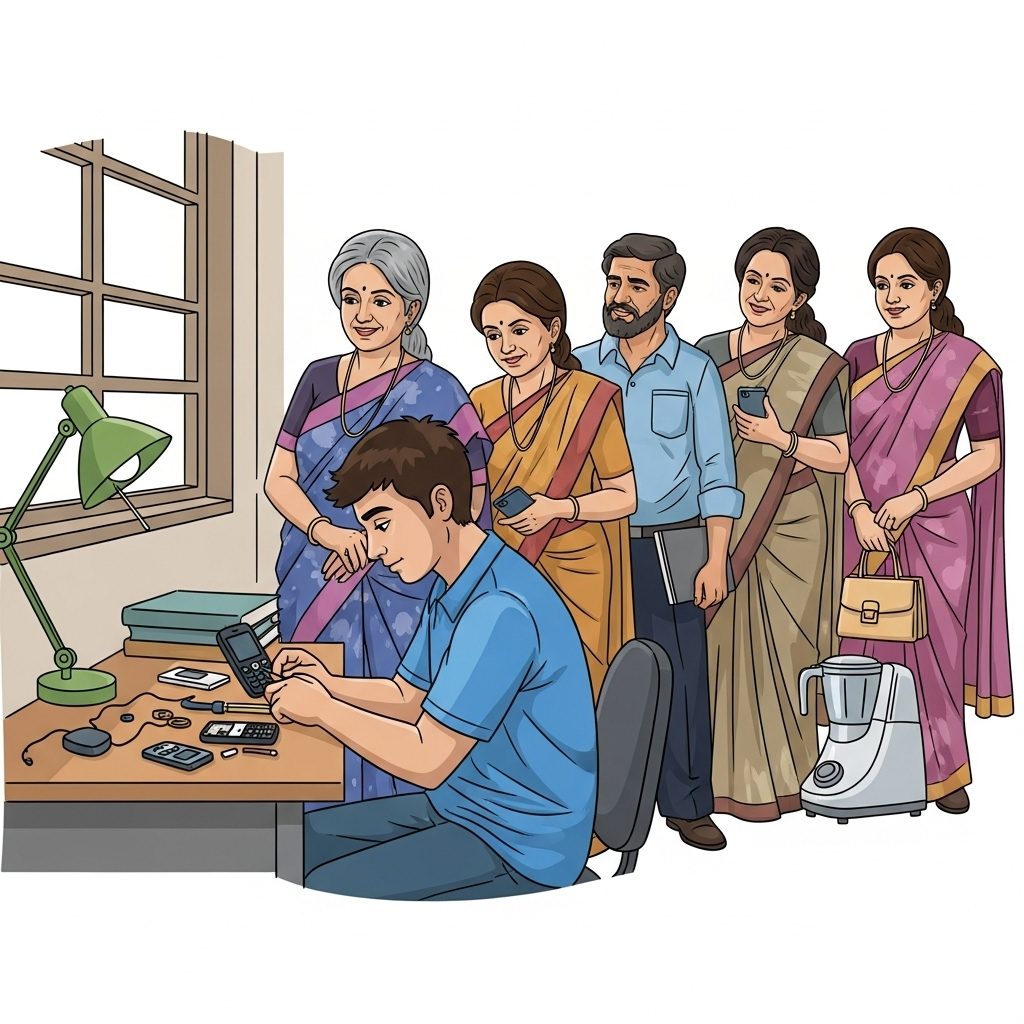
You know how it starts. You’re in Class 8, and suddenly you’re the go-to guy for fixing everyone’s bicycle chain. Or maybe you’re the one who can draw a cartoon that actually looks like the teacher. It’s a little thing. A small talent that you don’t think much about.
Then, slowly, it builds.
By the time you’re in college, you’re not just drawing cartoons; you’re designing posters for the college fest. You’re not just fixing bikes; you’re the designated mechanic for your entire friend group. The whispers turn into, “Hey, you’re really good at this. You should do this for a living.”
And that’s when the trouble starts.
The heart swells, the ego inflates, and you start seeing dollar signs. You think, “Finally, I’ve found my passion! This is it. This is how I’ll escape the rat race.” You’re high on the idea of turning your talent into a career, of making a living doing something you actually love.
But hold on. This is the part where you need to hit the pause button. The emotional part of you wants to jump, but the logical part—the part that needs to pay rent—needs a reality check.
See, there’s a difference between being talented and being proficient.
Talent is a gift. It’s the natural ability that makes you stand out. You can draw, you can code, you can write. It’s what makes people say, “That’s cool!”
Proficiency is something else entirely. It’s the art of taking that talent and molding it into something someone will actually pay money for. It’s about being disciplined, punctual, and reliable. It’s about delivering, not just dreaming.
Here’s the trick: Start charging. Even a small amount.
Next time someone asks you to fix their laptop or design a logo, don’t do it for free. Say, “Sure, it’ll be 500 bucks.” Watch their face.
If they say yes, even grudgingly, you’re on to something. It means your talent has value in the market. It means you’re not just a good friend; you’re a resource. This is your green signal. Keep practicing, keep honing, and keep building that proficiency.
But what if they balk? What if they say, “Dude, you’re my friend! Why are you charging me?”
That’s your first sign. It’s not a failure; it’s just data. It tells you that maybe your skill isn’t quite ready for the open market, or maybe you’re surrounded by the wrong people. Either way, it’s a crucial piece of information.
Talent is what gets you applause.
Proficiency is what gets you paid.
Read that again.
The biggest mistake people make is thinking talent alone is enough. It’s not. No matter how good your code is, how beautiful your art, or how clever your writing… if you’re not timely and disciplined, you’re squandering your biggest advantage. Being punctual isn’t sexy, but it’s the easiest, most effortless way to stand out. It’s the difference between a genius who never delivers and a reliable pro who gets the job done.
So, go ahead. Keep your talent. Nurture it like a precious plant. But if you’re thinking of making it your main source of income, remember this: talent is the seed, but discipline and timeliness are the water and sunlight. Without them, it’s just a nice idea waiting to wither away.
Keep the side hustle, but maybe hold on to that secure 9-to-5 until your passion can actually pay for the Maggi.
